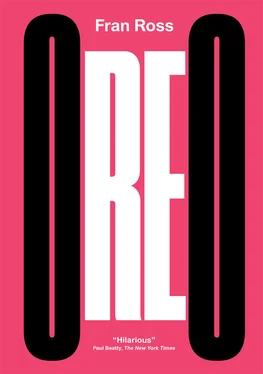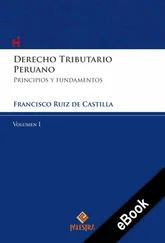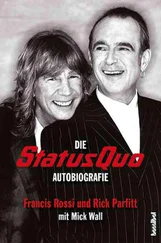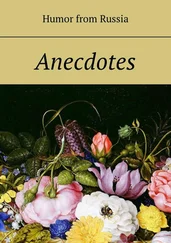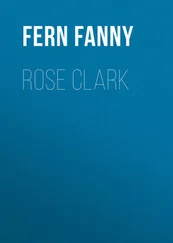If Theseus’ entry into the Labyrinth suggests the masculine hero’s return to the womb followed by the rebirth of a new self through the feminine power of his guide, Ariadne, Oreo’s quest to meet her deadbeat dad suggests a feminist daughter’s claim to self-knowledge as well as her determination to challenge patriarchy and to contest the phallic power of the male. Unlike Theseus and the Minotaur, who owe their existence to the perverse promiscuity of gods and aristocrats, Oreo is the legitimate offspring of a middle-class couple who happen to be of different races and religions; and unlike other feminist heroines of the 1970s, Oreo remains virginal throughout her often risky adventures. Although Ross stirs racy jokes and spicy sexual innuendo into the mix of Oreo , it is perhaps because of conventional strictures on the sexual expressiveness of black women that Ross prefers to demonstrate her heroine’s physical and intellectual prowess in martial and verbal arts rather than in sexual adventures such as those of Erica Jong’s Isadora Wing in Fear of Flying , or Rita Mae Brown’s Molly Bolt in Rubyfruit Jungle , two novels published in the year before Oreo appeared.
As a literary heroine, Christine “Oreo” Clark is both particular in her individual and cultural identity and universal in her quest for self-knowledge. Though Oreo is a physically beautiful young woman, what is most striking is her ability to amuse herself in any situation, owing to her speculative intelligence and wry sense of humor. Her attention to verbal quirks and habits of speech defines her character and calls the reader’s attention to the artifice of language as a cultural construct, demonstrating the materiality as opposed to the transparency of the spoken and written word. Christine Clark, nicknamed Oriole (the bird), but called Oreo (the cookie), is the offspring of an African American mother and a Jewish father. Oreo’s parents divorce shortly after her younger brother is born, and she grows up knowing only the black side of her family: her African American mother, Helen, her brother, Moishe (called Jimmie C.), and her mother’s parents, James and Louise Clark. Each member of the family has a different idiosyncratic relationship to language, thus contributing to Oreo’s semiotic competence and opening the text to a variety of verbal experiments and variations on the spoken and written word.
James, Oreo’s black grandfather, is speechless following an immobilizing stroke that occurs minutes after hearing that his daughter “was going to wed a Jew-boy” (3). Her grandmother Louise speaks an almost incomprehensible southern dialect. Helen, Oreo’s mother, converses in standard English sprinkled with Yiddish she learned from her father, who before his stroke ran a mail-order publishing business selling religious publications to an exclusively Jewish clientele. Oreo’s mother is a gifted professional musician and eccentric amateur mathematician who ponders whimsical “head equations” whenever she suffers from boredom or distress. Oreo’s younger brother, Jimmie C., expresses himself with a secret musical language of his own invention, and prefers to sing rather than speak. When a neighbor’s tomcat loses a fight with an alley cat, the woman announces, “My cat’s a coward.” The sensitive Jimmie C., who has put his fingers in his ears during the cat fight, hears “Mah cassa cowah,” thus providing the family with a strange new idiolect:
Jimmie C. was delighted. He decided to use this wonderful new expression as the radical for a radical second language. “Cha-key-key-wah, mah-cassa-cowah,” he would sing mysteriously in front of strangers. “Freck-a-louse-poop!”
Oreo recognized the value of Jimmie C.’s cha-key-key-wah language over the years. For her, it served the same purpose as black slang. She often used it on shopkeepers who lapsed into Yiddish or Italian. It was her way of saying, “Talk about mother tongues — try to figure out this one, you mothers.” (42)
Ross’s novel can be read as a deliberate extension of the possibilities for expression, humor, self-defense, intellectual stimulation, and aesthetic pleasure in the various mother tongues or invented languages that the heroine can claim as her own, from the almost unrepresentable dialect of her African American grandmother to the code-switching “Yidlish” that is the lingua franca of several relatives on both sides of her family. In addition to the vernaculars of her own blood kin, Oreo can also claim fluency in the salty street talk of hustlers, pimps, and prostitutes, as well as the obscure erudition of cranky scholars.
Oreo’s ability to speak and communicate with a diverse cast of characters is a skill she cannot take for granted. Her grandfather is silent for much of the novel; her grandmother speaks a southern dialect alien to the northeast; her brother sings a secret invented language that resembles a cross between baby talk and the ooga-booga lingo of natives in old Tarzan movies. Oreo hears in his babbling a “radical” new language that serves as an extravagant means of self-expression and self-defense, like black slang or the arcane scat of bebop hipsters.
Ross seems to anticipate hip-hop culture’s technologies of sampling and distorting sound at the same time that she satirizes the “mainstream” culture’s marginalization and appropriation of racial and ethnic difference, when Oreo substitutes for her actor father in the Harlem studio of Slim Jackson, the mute “Mr. Soundman.” Pitching the products of “Tante Ruchel’s Kosher Kitchen,” she performs a shmaltzy shtick aimed at Jewish consumers. At the very moment that she is searching for her Jewish roots, tracing her father through the brothels and sound studios that are his accustomed haunts, Oreo replays her father’s sold-out commercialism, even as her performance in the radio commercial calls into question the whole idea of authentic ethnic identity. With the close proximity of commercial recording studio and bordello, Ross satirically notes the pimping of creativity that capitalist cultural production requires. Significantly, both establishments are located in Harlem, where Oreo’s father sells his talent in order to buy time with black prostitutes and to provide his wife with domestic help (also black women).
The satirical force of Ross’s parodic inversions relies on the reader’s awareness of historical roles in which African Americans and Jews have been cast in the making of popular culture. Oreo’s passable impersonation of a Jewish housewife inverts such popular culture scenarios as Al Jolson’s performance in The Jazz Singer as the son of a Jewish cantor who sings “jazz” in blackface in the first major Hollywood film to incorporate synchronous sound. Oreo’s mimicry also brings to mind the radio production of Amos ’n’ Andy , in which characters speaking a comical black vernacular dialect were played by white actors. The roles of Slim Jackson and Samuel Schwartz invert the more typical relations of white producers and managers of black talent before the 1960s.
Ross aims her satire at the commercialization of culture that tends to produce reductive and often degrading caricature, while it deprives many Americans of a richer, livelier linguistic heritage. Although Oreo has an appreciation of the vernacular, she is also aware of the power of the stereotype, which she manipulates to her own tactical advantage. The closer Oreo comes to unraveling the clues that will enable her to find her father and discover “the secret of her birth,” the more she relies on her talent for improvisation and impersonation. She moves from her conventionally essentialist performance of Jewishness as the niece of “Tante Ruchel” to an equally stereotypical performance of blackness as a spy in her father’s house. At one point she impersonates a domestic day-worker in order to glean insider information about the Schwartz family, pumping their black housekeeper for juicy details as they gossip together like yentas. Later, impersonating the family’s trusted factotum and confronted with an officious medical professional, Oreo’s acting combines African American vernacular with body language borrowed from Hollywood’s stereotypical black servants, in a calculated ploy to dig deeper into the Schwartz family’s business and discover the secret withheld by her father.
Читать дальше
